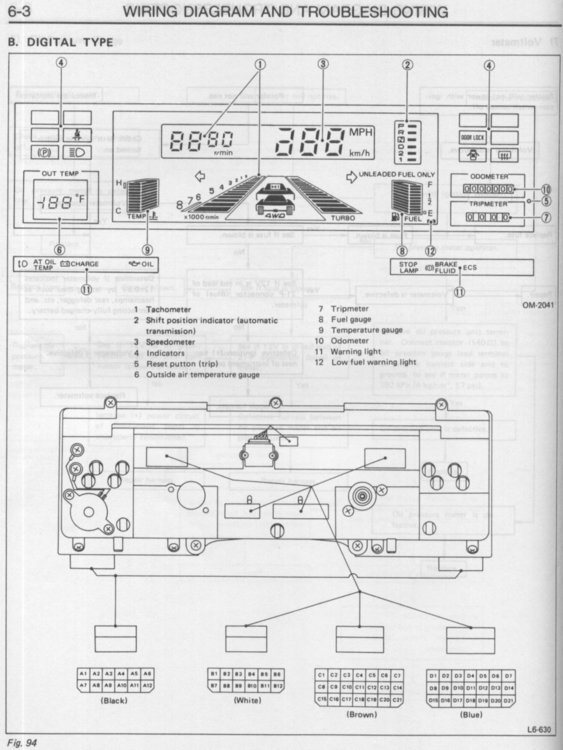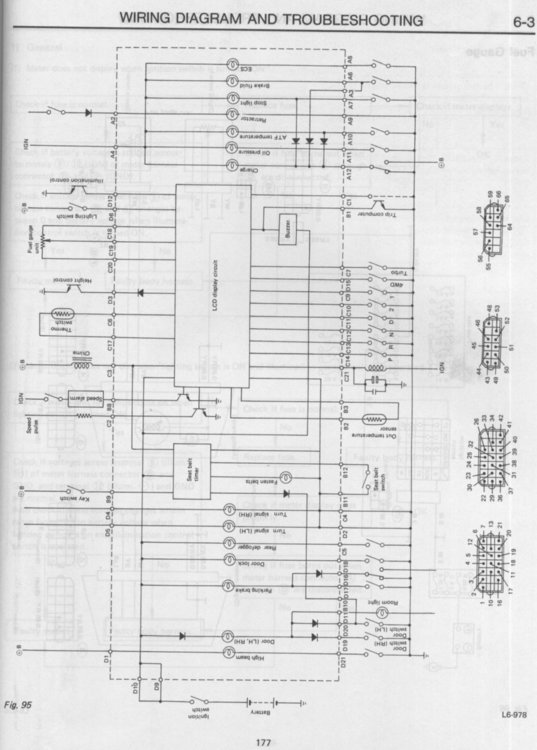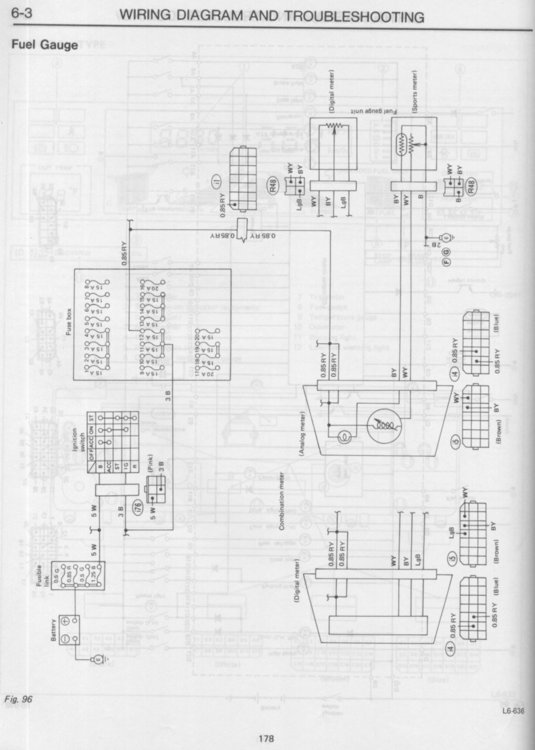-
Posts
5087 -
Joined
-
Last visited
-
Days Won
87
Content Type
Profiles
Forums
Gallery
Store
Posts posted by DaveT
-
-
Wild guess. Make sure the 2 diagnostic test connectors are disconnected. The single pole green, and white, near the wiper motor.
-
the light on the ECU - do you mean the red LED in the hole? That should be blinking - either trouble codes, or the all is well code. I know of no time it should be on steady.
-
That's what is in the link I posted. I'm not sure what powers the new version, I have one from 20 or more years ago, that has a hand pump to pressurize it. The professional ones connect to an air compressor.
The thing about waxoyl is that unlike paint, it does not get totally hard, it seeps and creeps into small places, and existing rust you can't see or didn't know was there. Also, to a point, it's self healing. -
How to do inside rockers -
https://www.hammerite.co.uk/product/waxoyl-pressure-sprayer/-
 1
1
-
-
The rockers have some holes you can get at from the inside. And you could add a few if needed to get coatings inside. But, yes, you have to coat the inside of welded repairs.
-
The one with the green paint, and the high number of ribs on the inner is an OEM axle. The other, who knows.
-
-
My 86 FSM has XT sections. I have seen an XT or 2, never worked on one. I do know SPFI EA82 wagons well.
Someone may have links to online scans, but if not I can scan a few pages, if we can figure out what pages would help.
-
Remove the kick panel from under the steering column. Bolted to the column, there is a plain metal box. there is a hole pointing toward the driver. peeking into the hole, you can see a red LED. [when it is blinking]
Start the engine. Look at the LED. Long blinks are the tens place digit. Short blinks are the one's place digit. All numbers are 2 digits. Codes are listed in a sequence, then repeated. There may be only one, like 34, or a few, 34, 31, 35.
Look up the code numbers, and or post them here.
-
Where did you get a 2 row ea82 radiator? Those have been NLA for a long time.
-
I had one of them like this. I had to try like 3 belts before I ended up with the right one. Unfortunately, it was long ago that I no longer have the numbers. All the rest of my similar cars have the other AC system. Anyway, get the longest belt that will still get tight for the AC compressor. Then you should have room to get the alternator belt tight. The sizes must be exactly the right belt. One size up or down it won't work one way or the other. I also remember filing one of the adjuster slots just a bit longer, to get just a bit more tension..
-
The ECU controls engine related stuff only. The door chime is just a chime wired to the door switches.
-
There is always trapped air. Until the thermostat opens, and the water pump can move significant volume of coolant. I got one of the no spill funnel filler things that attaches to the radiator cap, it helps a lot with getting all of the air out.
Fill the radiator. Squeeze the upper radiator hose to pump air out, top if as needed. Let the engine idle until the thermostat opens. Keep an eye on the coolant all along. Rev a few times once it's opened. That should get most of it.
-
It's worth verifying that the test mode connectors are not connected... Near the wind shield wiper motor, there are 2 one wire connector sets. One set is green, one set is white. They should NOT be connected for normal operation.
These cars can be inexpensive - IF you do all your own repairs, and you collect lots of spare parts. Many parts are NLA from dealers or aftermarket. I run 2 so I have transportation when one has a problem, as often, parts are not in stock anywhere... Except what I have collected in my garage.-
 1
1
-
-
How thick, what softness / hardness of the sheets?
-
Why not just get new seals for it? The metal parts should not wear any quicker than the rest of the engine.
-
 1
1
-
-
Pumps are designed for various parameters.. Lift, pressure, flow. The OEM ones are in back, don't have to do much lift. A lot quicker for the pump to get ahold of fuel to move, rather than air when it's closer to the tank, and lower elevation relative to the fluid level. It's all trade offs in the various performance parameters and cost.
-
I have not had one do that. Maybe 1 brush wore out, or broke / stuck. Forgot if these have 2 or 4 brushes.
-
The thing I found most effective and least destructive is to use a piece of rod or bar stock as a drift. Like 1/2" round, or 1/2"x1". Something beefy about that size. One end against the face of the washer, hit the other with a 1-2 lb hammer.
-
10W-40 unless you are in extreme cold climate.
-
I've been running & maintaining these engines since 1988. Several cars. Have not had any problem like this. One used engine had a stripped hole on one of the timing belt tensioner pulley brackets. Steel bolts into aluminum - be very careful to follow the torque specs in the manuals.
I suspect those bolt holes were stripped by someone previous to your work, if they stripped easily compared to other similar [steel bolt, aluminum block] things you have dealt with.-
 1
1
-
-
Idle oil pressure at normal operating temp is low. The built in gauge is not super accurate especially at low pressure.
Under the no load conditions of idle, the oil pressure doesn't have to be high. Also, part of the reason to never lug these engines, they are made to spin fast.
Cruising down the highway, it should be 40 -45 + / -. But that's on the built in gauge. It also has a fairly slow response time.the light sensor switch probably doesn't indicate until a number under 5PSI.
-
 1
1
-
-
Yes, this + heating the engine. I got one of those out - it would have snapped right off if I had tried to just unscrew it.
-
Interesting. They just plug on, or are there mods?






Can someone tell me where I can get a ignition transistor or is it possible to bye pass it. On a 90 Loyale
in Old Gen.: 80's GL/DL/XT/Loyales...
Posted
The ECU code LED should be blinking an all is ok code with the key in run position. Does that happen?